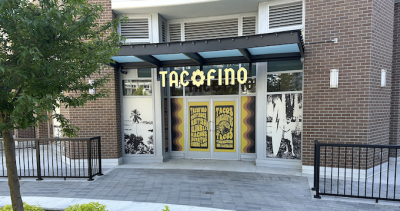Downtown Eastside activists to receive BCCLA award for bending the rules to save addicts' lives
Last September, a trio of women pitched a tent facing into a back alley near the intersection of Columbia Street and East Hastings. They set up a couple of tables there with a basket of clean needles and a supply of naloxone, a drug that’s used to reverse the effects of an opioid overdose.
Sarah Blyth, Ann Livingston, and Chris Ewart called it the Overdose Prevention Society. Since the arrival of fentanyl, there had been a lot of overdoses in that alley. And so in potential violation of Canada’s Controlled Drugs and Substances Act, they created a relatively safe space where people could inject drugs and where, in the event of an overdose, there would be someone there to revive them.
Three months later, B.C. health minister Terry Lake issued a ministerial order that instructed health authorities across the province to establish sites for drug users just like the tent that the Overdose Prevention Society pitched in that Downtown Eastside alley.
“I woke up yesterday at 4 o’clock in the morning and was thinking about the pop-up tent,” Lake told the Straight in an interview that month. “So we pulled the team together quickly, Vancouver Coastal had some plans in place. And so we just expedited everything.”
Within a week, there were more than 15 overdose-prevention sites operating in cities throughout B.C. Since then, staff at those locations have reversed hundreds of overdoses. No one has died at any of the sites.
On May 11, Blyth and the Overdose Prevention Society will receive the first-ever B.C. Civil Liberties Association (BCCLA) Jennifer Prosser Wade Award for Courage: Where truth speaks to power.
BCCLA community engagement director Charlotte Kingston told the Straight the Overdose Prevention Society was selected from a group of 50 nominees.
“The work of the OPS rose to the top because each of their volunteers faced a very real risk of criminal penalty for their work and because the work that they were doing was just so extraordinarily important,” she said in a telephone interview. “They have saved hundreds of lives.
“In choosing to take on that risk, they created a model that other people are now following,” Kingston continued. “If not for the leadership that they have shown, we would not have seen this expansion of new services.”
Last year there were 931 illicit-drug-overdose deaths in B.C. That compares to an annual average of 212 for the years 2001 to 2010.
Alongside the award’s release, the BCCLA has launched a campaign that asks people to get involved in the 2017 provincial election happening on May 9.
Kingston said they’re encouraging people to contact the candidates in their local ridings and ask them three questions. First, how their party plans to respond to the overdose crisis. Second, what their government would do with $10 million that Ottawa recently transferred to B.C. for the province’s response to fentanyl. And third, whether or not they support an expansion of supervised-injection services and access to prescription heroin.
“Overdosing is now in the top 10 reasons that people are dying in this province, ahead of vehicular accidents,” Kingston emphasized. “So it should really be one of the top three issues in this election and we’re just not seeing it get much visibility. Nobody is talking about it as much as we would like to see.”
She encouraged people to contact their election candidates via the BCCLA’s website and to donate to the Overdose Prevention Society via its GoFundMe page.















Comments